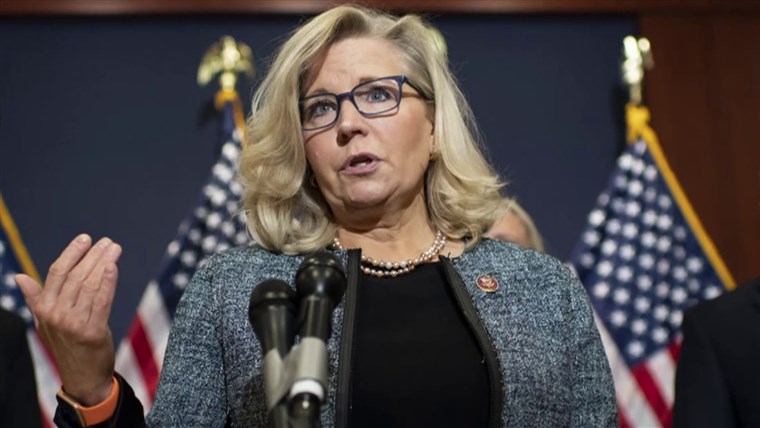Republican Senator Roy Blunt is retiring after his current term, which ends in January 2023. This leaves an open seat. There are three declared candidates so far, all running for the Republican nomination:
Mark McCloskey. You must remember Mark and Patricia McCloskey, the gun-totin’ St. Louis wackadoos who became sweethearts of the Right for threatening to shoot peaceful Black Lives Matter protesters. The allegedly male half of the pair has declared his candidacy for Roy Blunt’s seat. Here is his pitch:
An angry mob marched to destroy my home and kill my family, I took a stand to defend them.
I am a proven fighter against the mob
When the mob comes to destroy our home, our state, our nation— I’ll defend it
I will NEVER BACK DOWN
Help me FIGHT BACK ?? https://t.co/8N8o1yxN6C pic.twitter.com/jR8ieWdkCc
— Mark McCloskey (@Mark__McCloskey) May 19, 2021
Of course, there was no “mob” coming to destroy McCloskey’s home or kill his family. But what are facts when you’re defending FREEDUMB?!
McCloskey is a personal injury lawyer who is famous for suing everyone who crosses his path, including his own relatives. Yes, bad judgment, anger issues, and avarice are just what we need in a senator. See also Elliott Hannon, Slate, Mark McCloskey Announces Senate Run Touting Experience as Man in Video Pointing a Rifle at Passersby and Greg Sargent, WaPo, Meet the perfect Senate candidate for today’s Trumpified GOP.

Mark McCloskey shows off his statesmanship skills.
Eric Greitens. You might also remember former Gov. Eric Greitens. In 2018 Greitens resigned in order to avoid turning over documents from his dark money political organization to a House committee looking into impeachment charges. See Bad Coverage of Greitens Resignation for the whole story.
Greitens is a former Navy SEAL who ran for the governor’s office by highlighting his skill at destroying innocent vegetation with various military-style weapons. Because of course that’s an essential skill for a governor. Oh, and the best part is that he’s already hired the Crazy Screaming Lady, Kimberly Guilfoyle, as his campaign manager.
Eric Schmitt. And finally we have Eric Schmitt, currently serving at state attorney general. At least he has some experience in government. However, Schmitt might be the hinkiest specimen of the lot.
You might remember last December, when the Texas attorney general, Ken Paxton, filed a lawsuit challenging the presidential election results in Georgia, Wisconsin, Michigan, and Pennsylvania. You might remember that several other state attorneys general joined the suit. What you might not know, but has since been reported by the St. Louis Post Dispatch (article is behind a paywall, sorry), is that Schmitt was behind getting those other attorneys general to sign amicus briefs on behalf of Paxton’s suit. Shortly after Paxton filed his suit, Schmitt’s top aide sent emails to other Republican AGs urging them to join in. This is from the St. Louis Post-Dispatch story:
The records themselves show, he says, that the attorneys general knew they were engaged in a political fraud, and that’s damaging for the future of democracy. In one email, for instance, an aide to North Dakota Attorney General Wayne Stenehjem makes it clear the amicus brief has little basis in law. “The decision whether we join this amicus is more political than it is legal,” wrote the aide.
(“He” is Jon Western, a political science prof investigating the suit. Schmitt refused to comply with state sunshine laws to provide copies of the emails, but Western was able to get them from another state.)
But Schmitt has a record of filing bizarre lawsuits. Last year he sued China, three government ministries, two local governments, two laboratories and the Chinese Communist Party in U.S. District Court for China’s failure to contain the coronavirus. The suit, which might generously be called “judicial theater,” is still being pursued as far as I can tell.
He’s filed suits against the Biden Administration already. One challenged President Biden’s Mexican border policy, although Missouri doesn’t border Mexico. He also sued the Biden Administration over oil and gas leasing regulations. Most recently he sued the St. Louis County Executive, Dr. Sam Page (a physician), over county covid health orders. The county still had some mask mandates and limits on social gatherings (this was before the recent change in recommendations from the CDC), and Schmitt didn’t believe the county should be allowed to do such things. So he sued, but weirdly forgot to sign the paper filed in court, so the county just ignored it. Well, except to issue the following statement:
“We all know Mr. Schmitt is trying to increase his profile statewide and suing those protecting the health and safety of residents is apparently one of the ways he has chosen to do that. Our focus is on getting people vaccinated and on economic recovery.
“Litigation around public health orders across the country is nothing new and St. Louis County has been successful in defending every legal challenge around public health orders. Our legal foundation is sound.”
That’s about right. It’s all about Schmitt getting attention. What else he does as AG, if anything, I’m not sure.
Those are the three for sure candidates. Some other Missouri Republicans have made the trip to Mar-a-Lago to get Trump’s blessing. None of the other names that have been named as possible Republican candidates are any less nutso that the three in the race so far.
What about Democrats? Claire McCaskill has already said she has no intention of running again. Former governor Jay Nixon is a possibility. You can read about the other possibilities here. None are anywhere close to being as well known as the Republican candidates.









